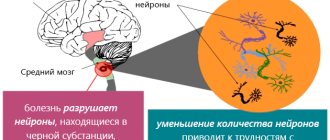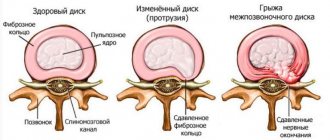Sociopathy (dissocial personality disorder) is a term that has recently appeared in psychiatry and denotes a persistent disturbance of a person’s character, which complicates his social adaptation, accompanied by a disregard for foundations and norms. Literally it can be translated as “socio” - society, “pathia” - disease. Literally, sociopathy is “a social disease, a violation of relationships with people.” Sociopaths are distinguished by aggressive behavior, bad character, and inability to build relationships with others. Today, the term “sociopathy” is fashionable thanks to various films and TV series about heroes who “go beyond” social rules. During the development of domestic psychiatry and psychology, scientists used another term: “psychopathy.” Within this disorder, their types are distinguished according to different classifications, but the following characteristics remain the same:
- persistence of manifestations of violation (they do not go away);
- totality (the violation affects the entire personality as a whole, and not individual mental functions);
- violation of social adaptation.
The line separating psychopathy and sociopathy is very arbitrary. And it lies in the origin of the disorder (etiology). Psychopathy is traditionally considered more of a congenital disorder, in which there are specific features in the structure of the brain and/or disruption of biochemical and metabolic processes that cause behavioral problems. Sociopathy has more social causes in origin - a destructive family, chronic psychotrauma, deprivation of affection and care in early childhood, a distorted type of upbringing, etc.
Etiology of sociopathy
There is no consensus among doctors and scientists about why sociopathy occurs. Experts name the following causes of the disorder:
- heredity;
- mistakes in education;
- problems in society;
- copying the behavior of a person suffering from this illness: imitation of an individual who is in a close environment - family or friends.
As a rule, the reasons act in combination, “layering” on each other, so it is extremely difficult to single out one factor.
Causes
Dissociative (conversion) disorders most often develop as a reaction to traumatic events that occurred in childhood or adulthood. These may include long-term domestic abuse, sexual or emotional abuse, military conflict, natural disaster, kidnapping, accident, or traumatic medical procedure. For victims, this “going beyond oneself” is a way to cope with the traumatic event, to observe it from the outside - as if the “bad thing” was happening to another person.
Dissociative disorders most often occur in childhood, during the formation of personality.
The International Classification of Diseases presents 10 types of dissociative (conversion) disorders: dissociative amnesia, dissociative fugue, dissociative stupor, trance and possession, dissociative movement disorders, dissociative convulsions, dissociative anesthesia (loss of sensory perception), mixed dissociative (conversion) disorders, other dissociative disorders.
Types of Sociopaths
Individuals with dissocial disorder are divided into two types:
- Passive.
- Active.
The first type includes calm and silent people, characterized by good behavior due to fear of being punished. Such individuals are aware of the consequences of their actions and restrain themselves. A provoked individual of the passive type behaves very violently. This type adapts more easily to society, and psychotherapy in this case is more effective. The active type cannot restrain himself. Such people want to attract everyone's attention and are characterized by conflict, fights and aggression.
Manifestation of sociopathy
From the moment of manifestation, sociopathy usually persists throughout the rest of life. A distinctive feature of sociopaths is considered to be destructive behavior towards the environment and towards oneself. Such people often suffer from alcoholism, drug addiction, and lead a promiscuous sex life. Individuals with dissocial disorder are unable to plan long-term. Restriction of freedom and suppression of desires are tolerated negatively by them. They may threaten others and use force. Sociopaths are excellent at manipulating other people. Since they do not understand interpersonal relationships and are not afraid to offend or hurt another person, they view others as means to obtain the desired result. Individuals with dissocial disorder always try to dominate others. What others want and feel is of no concern to them. At the beginning of communication, sociopaths leave a good impression. They can behave well and observe standards of decency as long as they feel their own benefit.
Differences
The difference between social phobia and sociopathy is very big and lies in character traits and humanity. People who are afraid of society are usually distinguished by responsibility, kindness, and responsiveness. Patients with dissocial disorder do not have empathy, compassion, affection, love, etc.
A sociophobe is not at all dangerous, but a sociopath can do a lot of trouble and harm loved ones, acquaintances, colleagues, friends - it’s unlikely that anything will stop him.
Social anxiety is treated with antidepressants and psychotherapeutic methods, while sociopathy requires more radical action. As for completely getting rid of these disorders, the question remains open: there is a risk of relapse here and there. In addition, if a social phobe would like to get rid of his fears, then a sociopath feels quite comfortable and is unlikely to want to change anything.
Signs of sociopathy
If the disease is hereditary, then the first signs of sociopathy appear in the child in the preschool period. The symptoms of sociopathy (dissocial disorder) are expressed vividly. This is explained by the fact that a preschooler cannot understand his benefit by observing the norms and rules of good behavior. Such children lack the experience to control their impulsiveness. Therefore, their antisocial behavior is often accompanied by negative actions characterized by cruelty. They torture animals, can even kill them, and bully peers and younger children. Children's disobedience manifests itself in such actions as screaming, biting, fits of anger, running away from home, and wandering. A preschooler never demonstrates tenderness towards his family. The older the child gets, the more he learns to disguise himself, his behavioral manners become tougher, his actions become more sophisticated. If parents react incorrectly, this behavior can become even more entrenched and worsen. It is very important to develop an adequate parenting style, since childhood is the period when the child is most sensitive to social norms; he copies behavior subconsciously. This is intended by human nature. It is possible and necessary to influence the development of sociopathy and mitigate its manifestations in childhood. By adolescence, the symptoms of a personality disorder begin to “bloom”: a teenager may begin to leave home, steal, severely beat other people, demonstrate pseudo-suicide attempts in order to receive benefits from relatives. There is a very high probability of various chemical and non-chemical dependencies, etc.
Dissocial personality disorder
Manifestations of the disorder in boys usually become visible already at early school age. In girls, symptoms appear a little later - during prepuberty. Characteristics of sociopathy are impulsiveness, promiscuity, stubbornness, cruelty, deceit and selfishness. Children suffering from dissocial personality disorder often skip school, damage public property, get into fights, bully weaker peers and younger children, torture animals, run away from home, and wander.
A distinctive feature of patients with dissocial personality disorder is early opposition to parents. In social relations, depending on the individual characteristics of the patient, either open hostility or implicit but persistent disregard for the interests of other people is possible. Children and adolescents with dissocial personality disorder do not feel remorse if they are caught doing something wrong. They instantly find excuses for their own behavior, shifting the blame and responsibility onto others. Many patients start smoking, drinking alcohol and using drugs early. There is high sexual activity combined with promiscuity when choosing partners.
In adulthood, patients usually look adequate and socially adapted. Patients with dissocial personality disorder do not have communication problems - thanks to their charm, unique charm and ability to win over others, they often make a pleasant impression during superficial contacts. Lack of deep attachments, selfishness and inability to empathize provoke manipulative behavior. People with dissocial personality disorder lie easily, often take advantage of other people, threaten suicide, talk about a “hard fate,” or fake symptoms of non-existent physical illnesses in order to achieve certain goals.
The main goal of patients suffering from dissocial personality disorder is to gain pleasure, to be able to “snatch” as much pleasure as possible from life, regardless of objective circumstances. Patients are confident in the legitimacy of their desires and their right to satisfy any needs. They never reproach themselves, do not feel guilt or shame. The threat of punishment, condemnation or rejection by society does not cause them anxiety and depression. If their misdeeds become known to others, patients with dissocial personality disorder easily find an explanation and justification for any of their actions. Patients are practically unable to learn from their own experience. They either do not work, or are late, absenteeism and shift their responsibilities to other employees and perceive any criticism as unfair.
Eric Berne identifies two types of patients with dissocial personality disorder: passive and active. Passive sociopaths do not have internal restrictions in the form of conscience, rules of decency or humanity, but are guided by norms established by some external authority (religion, current legislation). This behavior protects them from open conflicts with society and allows them to at least partially (or formally) comply with the requirements of society.
Active patients with dissocial personality disorder are devoid of both internal and external restrictions. If necessary, at some time they can demonstrate to others their responsibility, decency and willingness to comply with the rules of society, but at the slightest opportunity they refuse any restrictions and return to their previous behavior. Active sociopaths more often demonstrate openly criminal deviant behavior, passive ones - hidden, formally unpunished (lying, manipulation, neglect of responsibilities).
Dissocial personality disorder persists throughout life. Some patients create social groups isolated from society, becoming leaders of sects or criminal groups. After 40 years, the criminal activity of patients usually decreases. With age, many patients develop concomitant affective and somatization disorders. Drug addiction and alcoholism often develop. Dependence on psychoactive substances in combination with antisocial behavior becomes the cause of worsening social maladjustment.
Diagnosis of sociopathy
Only after a thorough history can a person be diagnosed with dissocial disorder. The specialist records a stable lack of unity in most activities, emotional instability, attacks of aggression and poor control of actions. Symptoms of sociopathy include:
- lack of assessment of one's behavioral manners;
- disrespectful attitude towards people;
- refusal to accept generally accepted norms and laws.
This illness differs from the following mental illnesses:
- bipolar affective disorder;
- schizophrenia;
- neurosis;
- various manias.
Questions and answers
Is it possible to develop sociopathy in adulthood?
This pathology is observed in childhood and adolescence under the influence of heredity and provoking factors. In an adult, without treatment, it can take on slightly different forms and manifestations.
How is a sociopath different from a psychopath?
Sociopathic disorder presupposes at least some rudiments of internal understanding of the wrongness of one's own actions, but this rarely deters one from committing antisocial acts. This condition is characterized by high impulsiveness. With psychopathy, criticism of one’s behavior is completely absent, and all steps towards the goal are thought out in advance.
Examination criteria
Sociopathy can be assumed if the following manifestations are present:
- predisposition to hostility that develops into violence;
- lack of feelings of guilt and the ability to draw conclusions from one’s own negative experiences;
- indifference to the feelings of loved ones, lack of empathy;
- ignoring moral principles, social rules and norms of behavior;
- strong denial;
- avoidance of any relationships and helplessness in maintaining them;
- accusing people around you for no reason, making unfounded claims;
- The individual welcomes conflict situations, so he often creates them himself.
All of the above symptoms are not always clearly expressed, sometimes they have a partial manifestation.
Additional symptoms of sociopathy that are of great importance when making a diagnosis:
- Predisposition to deception. An antisocial personality easily lies, manipulates people, and enjoys his actions.
- Frequent arrests of individuals by law enforcement agencies or public charges resulting from disobedience to the country's laws and authorities, as well as moral and ethical standards.
- Fights, protests, manifestations of irritability and aggression towards other people.
- Committing unjustified and risky actions.
- Involuntary antics in behavior and communication.
- Constant irresponsible attitude towards compliance with the regime and external requirements, financial obligations (for example, work from 09:00 to 17:00).
- Receiving joy from the discomfort caused and damage caused to others.
Symptoms of sociopathy
Symptoms begin to actively manifest themselves with the onset of adolescence. In this case, remission is not observed; on the contrary, over time the disease becomes stable. The main symptom is the presence of destructive behavior, which can be directed at others or the person himself. Sociopaths often begin to use drugs or alcohol, and also have promiscuous sex.
It is important to note that patients are not able to make long-term plans. They find it extremely difficult to tolerate any infringement of their own desires or rights, and there is increased negativism. To prevent such effects, patients are often able to use physical force.
People suffering from sociopathy tend to be manipulative. Since they do not have the opportunity to experience any emotions, especially the negative spectrum, they begin to use all events and people around them to achieve their goal. It is also worth noting that in various situations, a sociopath is not able to take into account the opinions of other people and take into account the emotions that they experience.
At the initial stage of interaction, the patient can make a positive impression on the person. However, as they get closer, negative reactions, increased irritability and aggression begin to appear. Compliance with social norms and order can only be observed if the patient sees a certain benefit in this.
To diagnose sociopathy, specialists must find at least three consistent manifestations:
- Rapid onset of aggression, often escalating into physical violence
- Lack of ability to draw conclusions on their own, as well as the feeling of guilt that arises is alien to them
- Lack of emotions towards other people
- No emergence of empathy
- Lack of desire to follow established procedures and norms
- Pronounced nihilism
- A person does not want to maintain social contacts or follow generally accepted moral standards
- Cannot plead guilty to any acts; a variety of claims are made
- A sociopath feels comfortable when interpersonal friction arises.
Depending on the stage of development, symptoms can be pronounced. Regarding childhood, diagnosing the disease is much more difficult. Manifests itself in the form of unreasonable aggression, increased impulsiveness, and opposition to established norms of behavior.
Prevention
Since the etiology of dissocial personality disorder has not been fully studied, there are no preventive measures for this disorder. It can only be noted that sociopaths need a favorable environment. The child should feel the attention, care, affection, kindness and tender attitude of his parents. It is important that the child’s mother and father set a positive example of relationships - respect for all family members, no power or aggression. The child must understand what role people play in relationships.
Correction (treatment) of sociopathy
As mentioned above, the greatest effectiveness of correction of sociopathy is achieved in childhood. Parents are not recommended to aggressively combat sociopathic manifestations in preschoolers; it is better to immediately contact a psychotherapist or clinical psychologist to develop the most appropriate parenting strategy. Dissocial personality disorder is difficult to treat. The reason for this is the lack of ability to criticize their behavior and the reluctance of sociopaths themselves to turn to a specialist. It is difficult for a psychotherapist to establish a connection with a sociopath, which is important for proper therapy, since the client himself does not want to change anything. If the form of deviation has mildly expressed symptoms of an aggressive nature, those suffering from sociopathy can consult a specialist themselves. Usually they complain about the difference with other people, a different type of thinking, a feeling of lack of important moments in life, etc. This is an excellent therapeutic request that medical psychologists and psychotherapists at the Ember Center successfully work with, provided that the client himself is aware of the need to receive help. The Ember Center successfully works with the correction of dissocial personality disorder. Our psychotherapeutic course is aimed at strengthening family ties, observing traditions, and developing respect for laws, norms of behavior and rules.
Treatment of sociopathy
This is a disease that is practically untreatable, even with modern methods. The diagnosis is made through long-term follow-up, resulting in an individualized treatment plan. To achieve optimal results, it is recommended to consult a psychotherapist who has worked long-term with antisocial personality disorder.
The program can be divided into several methods:
- Psychotherapy. Often it has a second name: “talk therapy”. It is specifically used to treat antisocial disorder. As a result of therapeutic sessions, the patient can improve control over negative emotions, suppress the desire to assault, and eliminate substance abuse. However, using this method it is not always possible to achieve highly effective results if a person is not able to realize that he really suffers from a disease. This may result in harm to others.
- Use of medications. There is no general list of medications. It all depends on the individual situation and condition of the patient. For example, some specialists use Neuleptil, which helps control sociopathic manifestations within strict limits. If excessive manifestations of aggression are observed, antipsychotics (Bifren, Sibazon) are often used. However, these are drugs that quickly become addictive, so they are prescribed on a one-time basis. Medications are often intended to be used only if the patient’s behavior is out of tight control.
- Help from relatives and friends. The disease causes people to do things that hurt their closest family members. In this case, the patient does not feel guilty. If there is such a relative, then family members also need psychological help. A professional will help set certain boundaries on how to avoid possible aggressive attacks and acts of violence. Most often, certain psychotherapeutic programs are recommended.
There is no specific treatment regimen for personality disorders. Therefore, it is initially important to undergo a comprehensive examination, after which specialists will formulate individual treatment for each patient.
What to do if a sociopath doesn’t want to change anything, but his family suffers?
A typical situation today: the mother of a young man calls and asks him to “cure him.”
During the conversation, it turns out that several specialists and different methods have already been “tested”, and all in vain. As a rule, the leading symptom is alcoholism or drug addiction. In such situations, we recommend that the mother herself come to an appointment first and start working on herself, her experiences, her reactions. After all, the behavior of a sociopath that he shows is inextricably linked with the reactions of family members (so-called codependency). Both mother and other relatives in this case are codependent. They are subconsciously manipulated by a sociopath, participate in his “performance”, pathological life system, scenario (they can be called differently, the meaning will not change). Therefore, by changing the attitude and behavior of relatives and mothers, we will influence the behavior of the sociopath, and perhaps motivate him to seek face-to-face correction from a specialist. You can also contact us through popular messengers:
Diagnosis
SAD is characterized by a constant fear that in a social situation a person will say or do something that will cause a negative assessment from other people. Social situations are avoided or experienced in a state of distress, while the person understands that his fear is excessive and irrational. Avoidance behavior and anxiety lead to significant functional decline.
The DSM-IV-TR did not mention fear and avoidance associated with medical problems, but the DSM-V indicates that SAD may be secondary to medical illnesses. Some patients experience social anxiety due to symptoms of their illnesses (eg stuttering, tremors in Parkinson's disease, obesity, burns or injuries).
DSM-5 criteria for diagnosing SAD (social phobia)
1 – Fear and anxiety about social situations in which a person's behavior may be judged by others
2 – Fear that anxiety symptoms will be judged negatively by others
3 – Social situation:
– Almost always provokes fear or anxiety
– Avoided or experienced with feelings of fear or anxiety
4 – Fear, anxiety or avoidance:
– Incommensurate with the actual danger of a particular social situation
– Lasts a long time, usually more than 6 months
– Causes significant distress and functional impairment
5 – If any medical condition is present (eg stuttering, obesity), the anxiety is not adequate to its severity
A separate type of SAD is fear associated exclusively with speaking in public.










